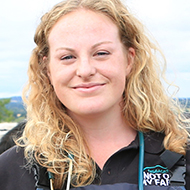
MSD Animal Health advises early discussions with dairy clients.
Vets are being urged to help dairy farmers prevent respiratory disease outbreaks in their herds ahead of the winter.
The call from MSD Animal Health comes in response to new figures that show 70 per cent of UK dairy herds are affected by Infectious Bovine Rhinotracheitis (IBR), while only 22 per cent of farmers are currently vaccinating.
Nicole Baldry, dairy veterinary adviser at MSD Animal Health, said: “It’s well-known that respiratory disorders, such as IBR, are more likely to happen at periods of stress or herds mixing.
“With the greater risk of respiratory pathogens spreading between animals during the winter housing period, due to the enclosed air space and higher stocking densities experienced, it’s crucial for dairy farmers to build their herd’s immunity ready for housing.”
Ms Baldry is advising vets to start discussing options with dairy clients four weeks before they plan to house their herds for winter. Doing so will allow enough time for a visit to the farm, during which vets can identify any improvements that could be made to housing and ventilation and for IBR vaccines to be delivered and administered.
She continued: “When discussing IBR with farmers, there will inevitably be perceived barriers towards vaccination and biosecurity measures, so it’s important to be sensitive to the practical and financial challenges a business may face. For the farmer, it’s important they consider that the benefits of protecting herd health and productivity against the impact of IBR outweigh the cost and effort of implementing a vaccination programme,” she added.
“It can be difficult for farmers to measure the return on investment of vaccination, given that the effect is generally a lack of disease. So, to help farmers understand its value, vaccination can be described as a form of insurance and a key tool to use alongside nutrition, hygiene and biosecurity.”
Ms Baldry added: “It’s a mindset change, and once farmers realise the knock-on value of healthier animals, they usually decide to follow the many other farmers who have already adopted good vaccination schemes for their herd.”
Image (C) MSD Animal Health.



 The Veterinary Medicines Directorate (VMD) is inviting applications from veterinary students to attend a one-week extramural studies (EMS) placement in July 2026.
The Veterinary Medicines Directorate (VMD) is inviting applications from veterinary students to attend a one-week extramural studies (EMS) placement in July 2026.